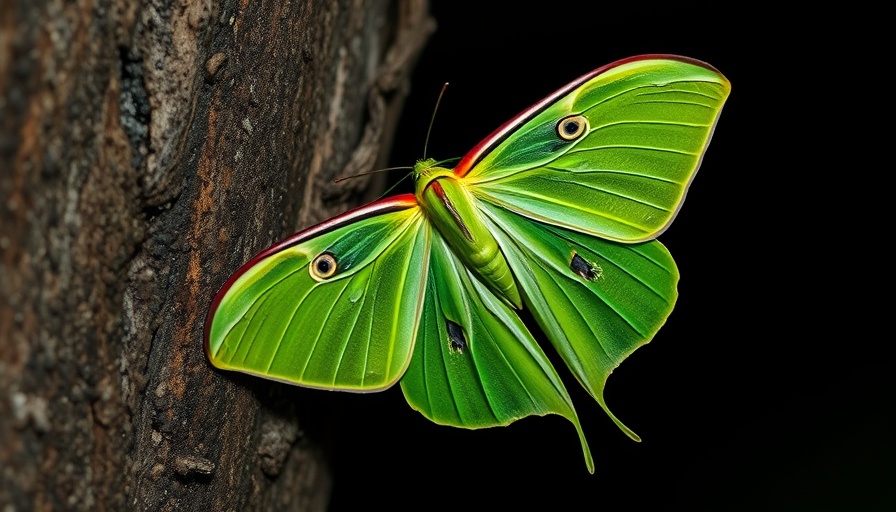
Understanding the Unsung Heroes of Pollination
It’s common knowledge that bees and butterflies play essential roles in pollinating plants and contributing to our food supply. However, many of us remain unaware that equally important allies work the night shift—nocturnal pollinators. A recent study conducted by a team from Lund University sheds light on the often-overlooked magic of night pollination. Their findings suggest that 90% of plant species enjoy comparable pollination success whether visited by daytime or nighttime pollinators.
The Diel Cycle: Pollination's Hidden Rhythm
The cycle of day and night, known as the diel cycle, significantly influences biological processes, including pollination dynamics. According to the researchers, the environmental shifts that occur from day to night do not hinder pollination as previously thought. Instead, nocturnal creatures like moths and bats effectively provide similar levels of plant fertilization as their daytime counterparts, a revelation that could reshape conservation strategies.
Evolutionary Adaptations: The Flexibility of Nature
One of the striking takeaways from the study is the adaptability of plants and their pollinators. Liam Kendall, one of the researchers involved in the review, expressed surprise at the high number of plant species showing flexibility in their reproductive processes. “It’s easy to assume that a specific plant needs a specific pollinator. Our analysis showed almost the opposite—there’s much more flexibility,” Kendall stated. This flexibility allows plants to thrive in diverse ecosystems where specific pollinators may not be readily available.
Implications for Biodiversity Preservation
As climate change and habitat loss threaten various species, understanding the role of nocturnal pollinators in maintaining biodiversity becomes vital. With traditional pollinators facing declining populations, bolstering awareness and protection of nighttime pollinators could be a game changer for our ecosystems. The lack of focus on these nighttime workers highlights the urgent need for research and conservation strategies that include all pollinators, regardless of their activity cycle.
Calling Attention to Nocturnal Pollinators
Despite being critical to plant reproduction, nocturnal pollinators receive considerably less attention and protection than diurnal species. A collective effort is needed to increase awareness of these essential pollinators. Engaging in local conservation initiatives, supporting native plant gardens, and practicing eco-friendly gardening can create a welcoming environment for both daytime and nighttime pollinators.
The Takeaway: A Call to Action
As we navigate the complexities of environmental stewardship, it's crucial to recognize every creature's role within their ecosystems. Harnessing the full potential of our ecosystems means appreciating and protecting all forms of life, including those that work under the cover of darkness. The next time you ponder the importance of pollinators, remember the unseen community of nocturnal workers contributing to the blossoming of our natural world.
 Add Row
Add Row  Add
Add 



 Add Row
Add Row  Add
Add 

Write A Comment